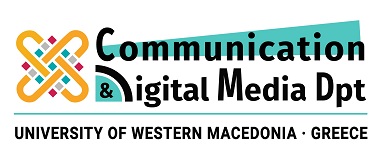CDM 2124 STATISTICS FOR SOCIAL SCIENCES
LEVEL OF STUDY: UNDERGRADUATE
COURSE UNIT CODE: CDM 2124
SEMESTER: 2nd
COURSE TITLE:STATISTICS FOR SOCIAL SCIENCES
TEACHING WEEKLY HOURS: 3 H/W LECTURES
ECTS: 4
COURSE TYPE: CORE COMPULSORY
TEACHING AND EXAM LANGUAGE: GREEK
COURSE DELIVERY TO ERASMUS STUDENTS: YES (in English through project work)
In this module, students are introduced to basic statistical concepts and principles and learn to apply the most common (and simplest) techniques of quantitative data analysis in the field of social sciences. In the first part of the module, students are taught descriptive statistics which include methods of organising, summarising, and concisely presenting large volumes of numeric data so that they can be «read» by, and meaningfully presented to, some audience (e.g. readers, TV viewers, conference participants, consumers, managers, etc.). In the second part of the module, students learn simple methods of inferential statistics which allow them to reach certain conclusions about a population based on data collected from a probability sample. On successful completion of the module, students will be able to collect appropriate data and apply suitable analysis techniques (statistical criteria) to answer research questions they have formulated. Each session includes the initial explanation of theory followed by application-consolidation exercises. The module is mostly theoretical in nature. The use of statistical software (SPSS) is taught in Semester 5 as part of the module “Communication Research Methods II”.
Even though statistics is a branch of mathematics, their application in social sciences does not require mathematical knowledge of a level higher than what is taught in compulsory education. An attempt is made, in this module, to limit the use of mathematical terms and formulas by presenting only those necessary and in as simple a manner as possible. The aim is to help students grasp the “qualitative” dimension of different statistical techniques and of their results (i.e. the “logic” underlying them) without placing too much emphasis on fully understanding the mathematical typology related to such techniques.
The module highlights the importance of statistical knowledge not only for conducting reliable research, but also for being able to critically evaluate research results presented in varied scientific papers, conferences, newspapers, TV shows, the internet and other information and communication media. In this way, students will become critical users of information rather than unquestioning consumers of transmitted “knowledge”. Another aim is to help students understand that statistics, despite their importance, do nothing more than help researchers reach their own conclusions based on personal judgements and with a limited degree of certainty. The meaning that a researcher attributes to his/her statistical results largely depends on his/her education and previous knowledge, as well as on personal prejudices.
Upon successful completion of this module, students will be able to:
- Collect varied types of data and apply appropriate analysis techniques (statistical criteria) to answer research questions they have formulated.
- Construct reliable scales for measuring different variables.
- Group the quantitative data available to them, statistically analyse them, and present them to an audience.
- Create and interpret simple diagrams.
- Calculate and interpret descriptive statistical measures and present these in table format.
- Design and carry out probability sampling.
- Formulate hypotheses and apply appropriate statistical criteria to validate them.
- Estimate the margin of error of simple statistics and the probability of type I and Type II errors in hypothesis testing.
